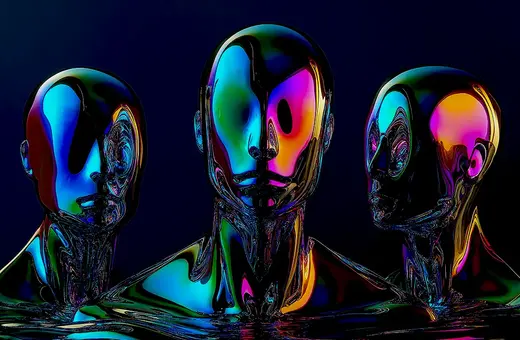Through online dating applications, social networks, big data analytics, automatic love and breakup letter generators, and other computational intrusions into the private domain, algorithms and artificial intelligence are taking control over the proverbially irrational feeling of love. It might appear enigmatic and impervious to logic, yet the sober perspective of computer science demystifies love and offers well-justified approaches to human relationship problems. Far from challenging the power of artificial intelligence and computation, love has given fertile ground for algorithmic solutions and optimisation procedures. A nuanced, mathematically-inspired look at romance reveals that there are calculable issues and quantifiable outcomes. The latest technological knowledge is now used to establish connections between potential partners and help us make informed decisions when looking for the right match. When it comes to love in the age of artificial intelligence, algorithms organise our relationships and guide partnership choices.
At the beginning of their delightful book Algorithms to Live By: The Computer Science of Human Decisions (2016), the San Francisco-based writer Brian Christian and the professor of psychology and cognitive science at UC Berkeley Tom Griffiths discuss the search for a life partner in terms of algorithms. Based on algorithmic evidence, they say that if, for instance, you give yourself 20 years to find Mr or Mrs Right, you should spend 37% of that time on uncommitted relationships. You will only be ready to marry the first person who is better suited to you than the previous partners after seven years and five months. The authors suggest that an algorithmic approach will still fail 63% of the time. Yet it will do much better than chance: if you are looking for that perfect needle, the algorithm “is your best defense against the haystack, no matter how large.” Intuition and romantic attachment are channeled into the cogs of the algorithm; the rule frames love and makes it efficient.
Quizzes, swipes and algorithms are fascinating technological developments, but what if AI can also impart to us ideas about love that we usually associate with deep thought?
Knowledge and the Randomness of Life
Our understanding of love is asymmetrically entangled with algorithmic determinism and blind chance.
Randomness plays an important role in the generation and germination of original thought. The human brain, however, tends to follow existing patterns, and hence cannot always embrace the randomness required to understand the ever more complex social reality of the modern world. Writing in Aeon magazine, the neurologist Robert Burton points out that “the complexity of social problems is outsmarting the human brain.” As a result, our thinking about the big questions of life can be flawed and superficial.
How to Understand Love
One such big issue is love. To understand it, we need to think outside the well-crafted box of conventional wisdom. A more comprehensive acceptance of randomness could help people overcome entrenched bias and develop original views of love. Therefore, artificial intelligence might be an answer to the conceptual stasis of modern romance.
Artificial Wisdom
There are online AI tools which generate insights into the human condition, producing ostensibly random combinations of words that sometimes capture the vagaries of our lives. They rely on human ideas but weave them together without conscious regard for traditional thought patterns. The algorithms might repeatedly employ a limited number of grammatical constructions and vocabulary, yet chance and previous human experience are merged to yield unconventional nuggets of artificial wisdom. One of these strange tools is the InspiroBot meme generator.



















Join the conversation